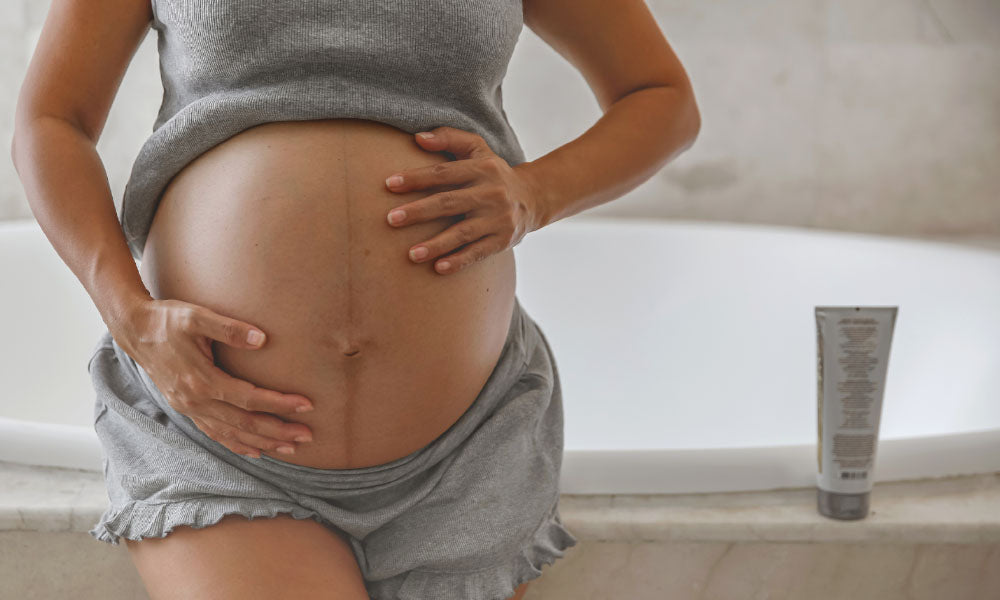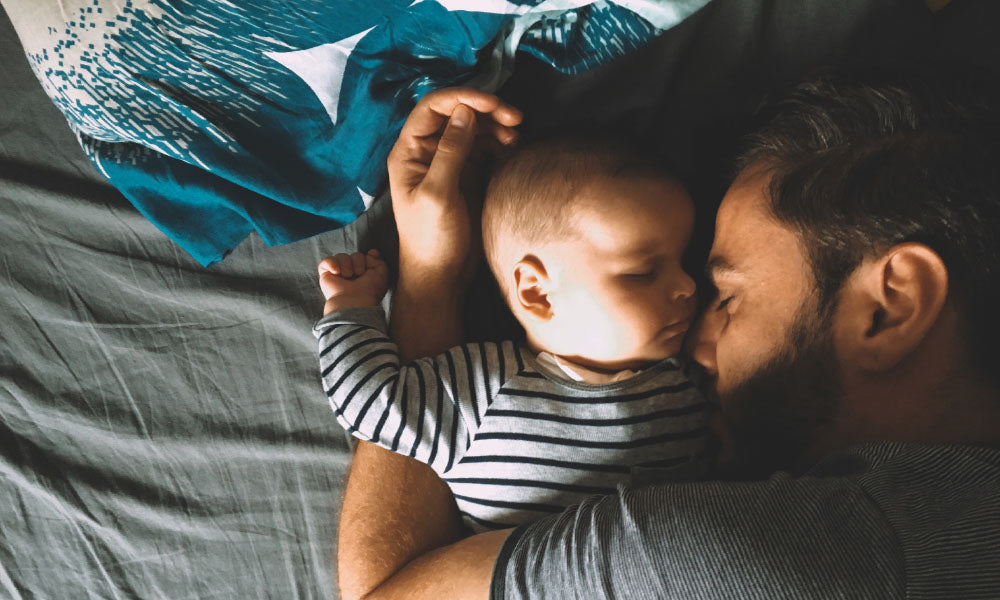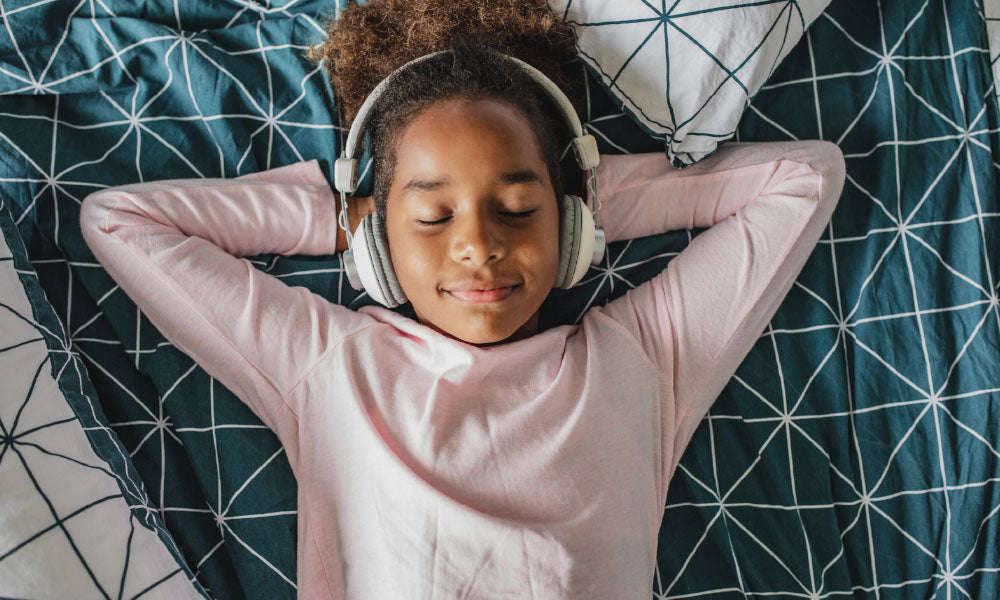I have spent a lot of time – more than I care to admit – studying my body, thinking about my body, worrying about my body, even hiding my body, but never so much as when I'm pregnant.
Now, please, do not misunderstand me. I wholeheartedly believe that growing a baby, another whole human being, is no doubt the miracle of miracles. I have often (through four pregnancies now) taken a moment to thank Mother Earth and God in their infinite wisdom for gracing me with a uterus instead of those rather silly man parts so that I could experience the absolute gift of creating life inside my body.
Yet as a woman – a woman with an eating-disordered past and a seemingly fated lifetime destiny of body image issues no less – I'm obligated to keep it real. So here it is: this is hard. It was hard the first time, and it has gotten no easier the fourth time. My body is changing and growing, sometimes so quickly I think I can see it happening. It's all completely out of my control, the very thing eating disorders seek to provide. There's the belly, sure, but that's not all. There's also the butt, the hips, the boobs, the kankles, and the pimples, to name a few. For the most mentally centered women this would feel strange, I imagine. For those of us like me, it can be a struggle.
While the active part of my own eating disorder was many moons ago, my recovery is ongoing. I have struggles with food and weight and control and my own body (and countless other things) that I have come to accept are part of the fabric of my general being. This was true as a sprightly teenager, it has been even more true as an aging woman who is not immune to gravity, and it is never more true than when I am faced with gaining 30 to 50 pounds in nine months.
I have often said (and I truly believe) that recovery from an eating disorder is very much like recovery from alcoholism. Once you have had issues with eating, you will always have issues with eating, and recovery becomes about learning to thrive despite and with those issues.
The glaring difference between recovery from alcoholism and recovery from disordered eating is that, of course, you can't – and shouldn't – just walk away from food, nor would I ever want to. I love food. And so the work lies in learning how to live this life where so much of who we are and how we interact and how we nurture and celebrate and mourn and cope and nourish and soothe and gather is completely wrapped up in and around food.
Somewhere in the silver lining of my own anorexia and bingeing struggles is the fact that I never lost my passion for reading cookbooks and spending time in the kitchen. So much so that it has become wrapped up tightly in my identity as a mother and a wife. For example, I have an incredibly hard time apologizing in heartfelt actual words when I'm wrong, but I am quite fluent in the language of conciliatory casseroles. Nothing in my daily life makes me feel more maternal and more feminine than my own family enjoying food that I have planned, cooked, prepared, and brought to the table.
Being pregnant gives me the incredible opportunity to nourish myself and my baby from the same meal. This, I know, is a gift.
It's worth mentioning that the media has done us no service in terms of putting the pregnant body up on the pedestal it deserves, either. All an unassuming mama-to-be in her dirty sweatpants and last night's mascara (ahem) has to do while grocery shopping on a weekend morning is glance towards the gossip rags to get the message loud and clear: pregnant women should be mocked for their (very necessary) weight gain, while postpartum mamas should be lauded for their (very dangerous) rapid weight loss.
This message of failure and self-doubt is loudly and clearly received by countless ordinary women, who are the ones without personal trainers and chefs and assistants paid to get us caffeine and cigarettes and ephedrine and cocaine to help us in our weight loss quest. We are the ones who are not paid absurd sums to walk down the Victoria's Secret runway sporting nothing more than a few strategically placed gemstones and some furry angel wings two months after giving birth. We are the ones who ascribe to the "nine months on, nine months off" mantra because it actually makes sense.
And of course, I see all of this through the lens not only of someone in recovery but also of someone who is raising two girls – two girls who are, in my humble opinion, the epitome of perfection – but two girls who may nonetheless struggle with body issues of their own.
What do I want them to see through this pregnancy? Me as a beautiful, radiant, confident pregnant woman with a big belly full of their brother or sister? Or me in a puddle of self-pity on the kitchen floor wondering if the cottage cheese I am making them as a snack looks as much like my legs as I think it does?
But if I'm honest, it's not just my own daughters who have been on my mind. It's all the women of my life: my daughters, my mothers and maternal figures, my tribe of friends, extended family, and neighbors. A pregnancy makes you draw your circle close, and these women are mine, each unique and beautiful and perfect like a snowflake. What's funny is that each one probably has things about their own physical bodies they struggle with (things which I have probably never even noticed, to be fair) and would likely not be comfortable strutting down the Victoria's Secret runway with jewels wedged in their crevices, but in my eyes they are absolutely perfect just the way they are.
I know there is a lesson in there, and every day I get closer to accepting it. And that is what recovery actually looks like, right? One day at a time.



